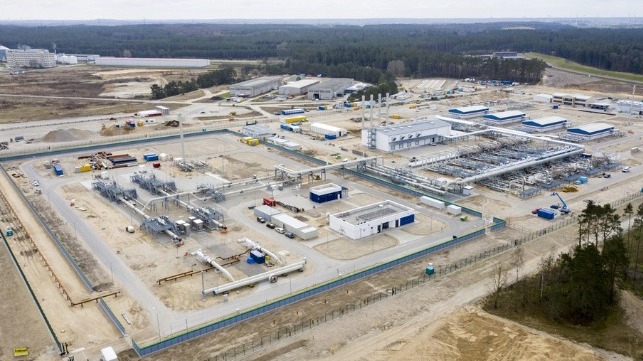Biden Administration Waives Sanctions on Nord Stream 2 AG

The Biden administration has waived sanctions penalties for Switzerland-based Nord Stream 2 AG and its CEO, Matthias Warnig, though the State Department acknowledges that they have engaged in sanctionable activity as the developers of the Nord Stream 2 project. The decision is a positive development for pipeline backer Gazprom and its majority shareholder, the Russian government.
"I have determined that it is in the national interest of the United States to waive the application of sanctions on Nord Stream 2 AG, its CEO Matthias Warnig, and Nord Stream 2 AG’s corporate officers," said U.S. Secretary of State Anthony Blinken in a statement Wednesday. "We will continue to oppose the completion of this project, which would weaken European energy security and that of Ukraine and Eastern flank NATO and EU countries. Our opposition to the Nord Stream 2 pipeline is unwavering."
In the statement, Blinken added that the State Department has sanctioned nine more ships from Russia's Marine Rescue Service, which are allegedly involved in the pipeline’s construction. As the vessels are owned by the Russian government, opponents suggest that the measure may not have an appreciable effect on the project's progress.
Though Biden's White House says that it opposes Nord Stream 2, it also prioritizes its relationship with the government of Germany, which strongly favors the pipeline's development. Sources close to the State Department's decisionmaking told Axios that the U.S. is not willing to damage its ties with Germany over the project, despite the negative impact on U.S.-allied Ukraine and Poland when the line is completed.
The Nord Stream 2 pipeline would deliver Russian natural gas directly to Germany's Baltic Sea coast, bypassing the existing pipeline network through Eastern Europe. Its opponents - including politicians of both parties in the U.S. Congress - are concerned that Russia could potentially use the new route to supply Western Europe while shutting off the gas (and lucrative pipeline transit fees) for Ukraine. Moscow used this tactic in 2006 and again in 2009, and tensions between the two nations are high: Russia is widely believed to be supporting proxy forces in eastern Ukraine in a bid to annex territory.
Despite current U.S. sanctions measures, Russian-owned vessels continue to lay pipe for the project in Denmark's waters, and the line is expected to be complete by the end of the year. Gazprom's share price has nearly doubled since late 2020, rising steadily from about $3.90 on November 3 to a one-year high of $7.19 on May 18.
